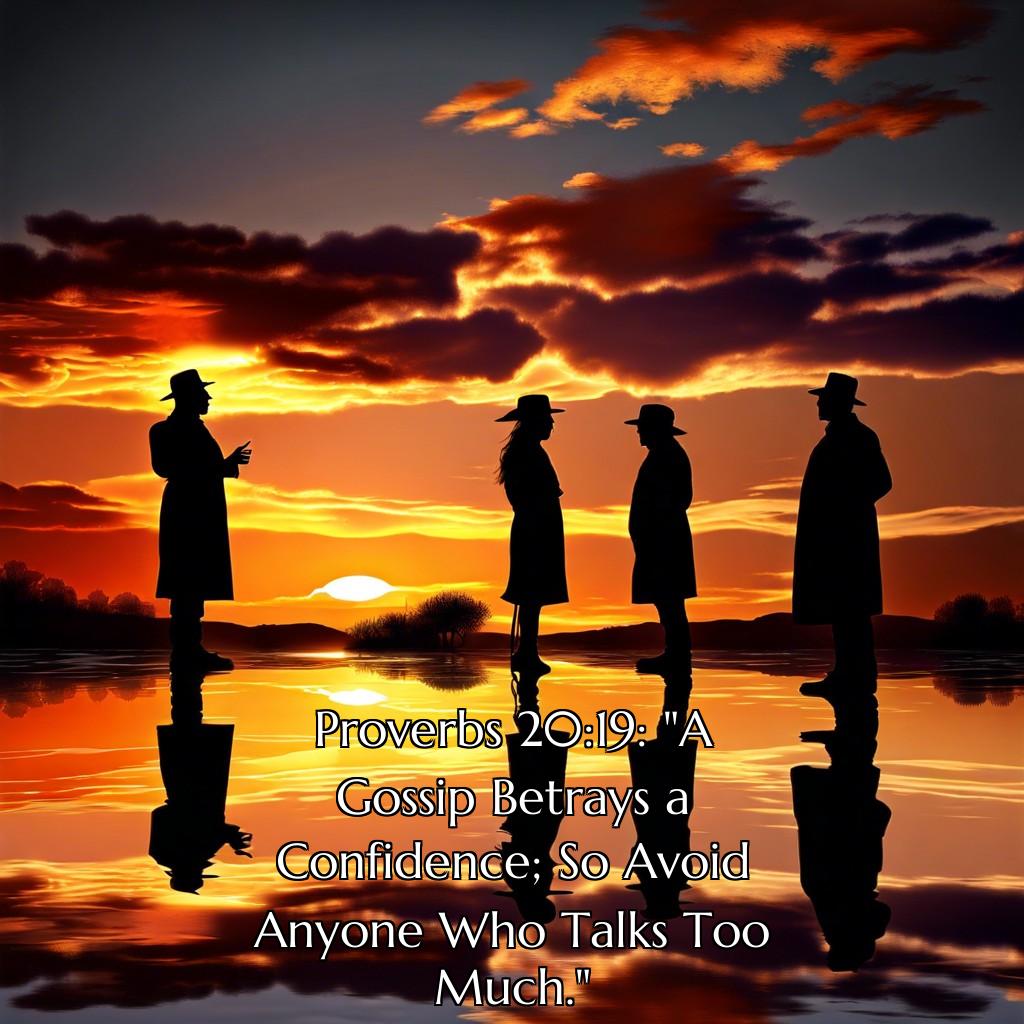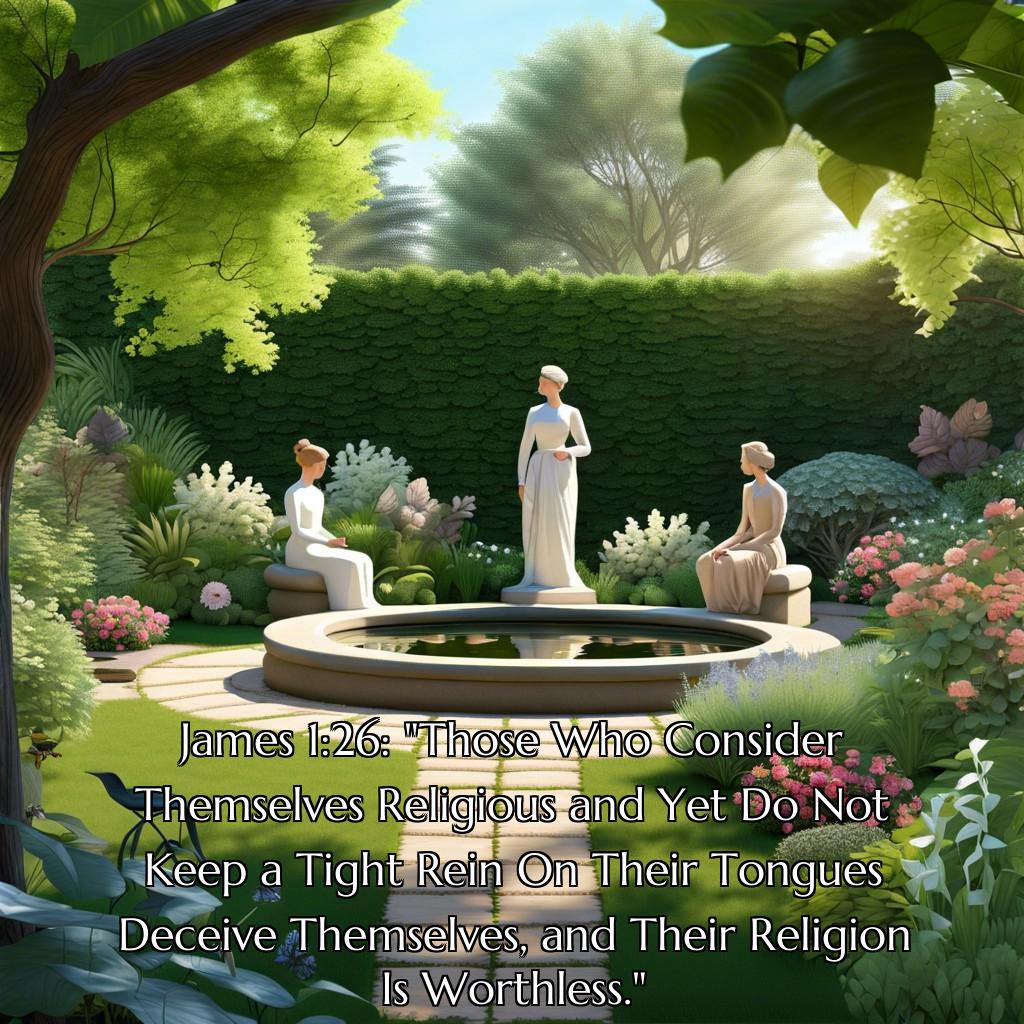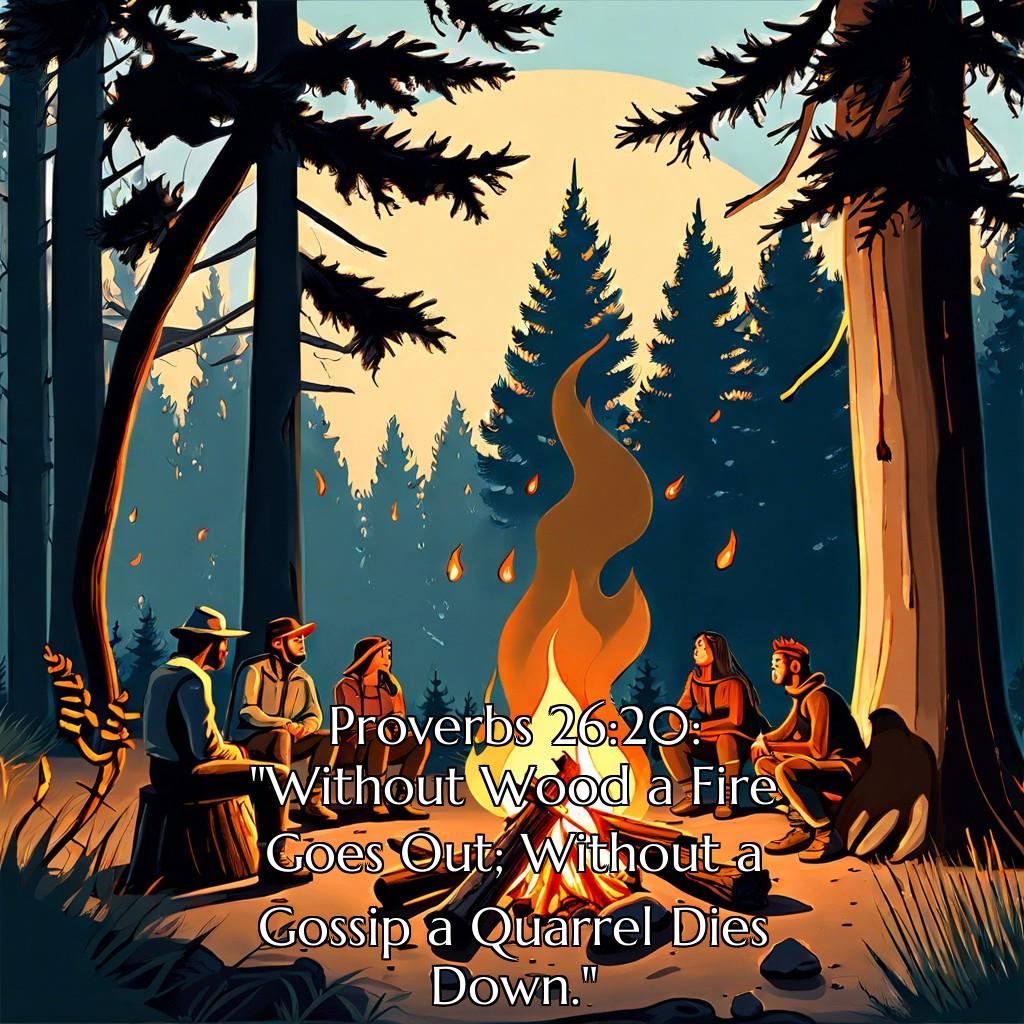This article explains the meaning of 10 Bible verses that address the harmful effects of gossip and why it should be avoided.
Gossip may seem harmless, but it can deeply wound relationships and disrupt communities. Exploring what the Bible says about gossip reveals timeless wisdom and guidance on guarding our speech. From Proverbs to Ephesians, these verses paint a vivid picture of the consequences of loose talk and the virtues of restraint. Read on to understand how scripture encourages us to speak life and truth instead of spreading harm.
Proverbs 11:13: “A Gossip Betrays a Confidence, but a Trustworthy Person Keeps a Secret.”

This verse highlights the destructive nature of gossip and contrasts it with the virtue of trustworthiness.
Gossip can erode personal relationships and betray confidences. When someone shares information meant to be private, it damages trust.
Being trustworthy means honoring the confidence someone places in you. It’s about maintaining integrity and fostering deeper, more meaningful connections.
This verse encourages us to evaluate our speech and its impact on others. Keeping someone’s secret is akin to safeguarding their dignity and trust in you.
Ultimately, valuing trust over gossip strengthens bonds and builds a healthier community.
Proverbs 16:28: “A Perverse Person Stirs Up Conflict, and a Gossip Separates Close Friends.”

A perverse individual is someone who distorts the truth for personal gain. This type of person thrives on creating chaos and conflict. Gossip naturally fits into this destructive behavior, as it can turn friends into foes. Gossip twists details or spreads unverified information, leading to misunderstandings.
When gossip spreads, trust erodes. It plants seeds of doubt and breeds suspicion. Even close friends can become distant due to broken confidence.
Gossip also fuels jealousy and resentment. When private matters are exposed, it can make people feel vulnerable and betrayed.
To maintain healthy relationships, it’s crucial to avoid engaging in gossip. Focus on honest communication and protect the confidences of those you care for.
Leviticus 19:16: “Do Not Go About Spreading Slander Among Your People. Do Not Do Anything That Endangers Your Neighbor’s Life. I Am the Lord.”

This verse is straightforward in its condemnation of spreading slander and causing harm to others. It is rooted in the concept of communal responsibility and respect for others’ well-being. Breaking down its key elements can help us better understand its deep-seated wisdom.
Firstly, spreading slander can dismantle trust and harmony within a community. It fractures relationships and stirs unnecessary conflict.
Secondly, the verse urges us to consider the broader impact of our actions on our neighbors. Harmful words can endanger someone’s emotional or even physical safety.
Finally, the phrase “I am the Lord” serves as a powerful reminder of divine authority. It underscores that these commands are not merely social guidelines but sacred duties.
In essence, this verse calls for integrity, compassion, and mindfulness in our interactions. It asks us to uphold the sanctity of our community by refraining from harmful speech and actions.
Ephesians 4:29: “Do Not Let Any Unwholesome Talk Come Out of Your Mouths, but Only What Is Helpful for Building Others Up According to Their Needs, That It May Benefit Those Who Listen.”

Paul’s advice in this verse stands as an ethical guideline for speech. Here’s what we can learn:
First, avoid unwholesome talk. This encompasses gossip, slander, and any form of communication that can harm others. It’s about ensuring our words contribute positively, not destructively.
Second, focus on building others up. Words have power. Use them to encourage, comfort, and support those around you. This creates a nurturing community.
Lastly, speak according to others’ needs. It’s about empathy. Understand what others require and tailor your words to meet those needs, offering genuine benefit to listeners.
In essence, Paul encourages us to make our speech a tool for good, promoting love and understanding in place of negativity.
Proverbs 20:19: “A Gossip Betrays a Confidence; So Avoid Anyone Who Talks Too Much.”

This verse highlights the consequences of associating with those who engage in gossip. Trust is fragile and easily shattered by careless words. A few points to consider:
Gossip undermines trust. Once trust is broken, it’s hard to repair.
Talking too much can lead to unintentional harm. Words spoken in haste can wound deeply.
Avoiding habitual gossipers helps safeguard your own integrity. Who you spend time with influences your behavior.
By staying clear of gossip, you contribute to a more trustworthy and supportive community.
Understanding this verse and applying it can enhance personal and relational well-being.
James 1:26: “Those Who Consider Themselves Religious and Yet Do Not Keep a Tight Rein On Their Tongues Deceive Themselves, and Their Religion Is Worthless.”

This verse highlights the importance of self-control, especially in speech. Here are some key points:
- True religion requires discipline of the tongue. Speaking without thought can cause harm and misrepresent faith.
- Words have the power to uplift or destroy. Reckless speech makes one’s faith appear superficial.
- Self-deception occurs when actions don’t align with beliefs. Merely claiming to be religious without controlling one’s speech shows inconsistency.
A reminder that actions, particularly in how we speak, are a reflection of genuine faith.
Psalm 34:13: “Keep Your Tongue From Evil and Your Lips From Telling Lies.”

This verse emphasizes the significance of controlling our speech. It highlights the power words have to harm or heal. Here are a few key points to consider:
Words can deeply hurt others, even if we think they’re insignificant. Being mindful can prevent pain.
Being honest in our speech builds trust. Lies, even small ones, can unravel relationships over time.
Resisting the urge to engage in negative talk fosters a more positive environment. Staying away from slander and gossip can dramatically improve our interactions.
Thinking before speaking ensures our words align with our values and faith. It’s a practice that becomes easier with time and commitment.
In practicing these principles, we reflect a life grounded in integrity and compassion, embodying the wisdom of this verse.
Proverbs 26:20: “Without Wood a Fire Goes Out; Without a Gossip a Quarrel Dies Down.”

This verse paints a vivid picture using simple, relatable imagery. Just as a flame needs wood to keep burning, arguments and conflicts require gossip to sustain them. When gossip is removed, disputes naturally lose their fuel and fizzle out.
Gossip often acts like kindling to a fire, spreading rapidly and intensifying discord. It’s the whispers and secrets that escalate tensions, turning minor disagreements into full-blown conflicts.
Imagine a community where gossip is absent. Relationships would likely be stronger, and misunderstandings would resolve more quickly. Without the constant stirring of the pot by gossip, peace and harmony have a better chance to thrive.
Stopping the spread of gossip can be as simple as choosing not to engage in it. This conscious choice can prevent further harm and promote reconciliation. It’s not just about avoiding hurtful talk; it’s about fostering a culture of trust and respect.
By cutting off the supply of gossip, we allow conflicts to die down, enabling healthier, more constructive conversations to take their place.
2 Corinthians 12:20: “For I Am Afraid That When I Come I May Not Find You As I Want You to Be, and You May Not Find Me As You Want Me to Be. I Fear That There May Be Discord, Jealousy, Fits of Rage, Selfish Ambition, Slander, Gossip, Arrogance and Disorder.”

Paul’s letter highlights concerns about the spiritual state of the Corinthians. Gossip is listed among the destructive behaviors he fears might be present when he visits. This reveals how seriously gossip is regarded, as it stands alongside jealousy, rage, and arrogance.
Gossip can lead to:
- Discord: It spreads negativity and can create division within communities.
- Distrust: Once someone is known to gossip, it becomes hard to trust them.
- Erosion of relationships: Even strong ties can break down under the strain of malicious talk.
Paul’s warning serves as a reminder to be mindful of our words and their potential to harm, urging us to foster harmony and understanding instead.





